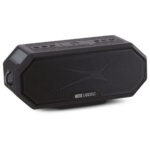Choosing the right web browser is more crucial than ever. It’s not just about speed and efficiency; it’s about security, privacy, and how well it integrates into our digital lifestyle. This comprehensive guide will explore the top web browsers, delving into their features, performance, and what sets them apart.
Top 10 Web Browsers by Market Share
| Rank | Browser | Market Share (%) | Source |
|---|---|---|---|
| 1 | Chrome | 62.85 | StatCounter |
| 2 | Safari | 20.04 | StatCounter |
| 3 | Microsoft Edge | 5.50 | StatCounter |
| 4 | Firefox | 3.23 | StatCounter |
| 5 | Opera | 3.17 | StatCounter |
| 6 | Samsung Internet | 2.44 | StatCounter |
| 7 | UC Browser | 1.27 | StatCounter |
| 8 | Chrome Mobile | 1.17 | StatCounter |
| 9 | Internet Explorer | 0.71 | StatCounter |
| 10 | Yandex Browser | 0.64 | StatCounter |

Notes:
- Market share values may vary slightly depending on the source and methodology used.
- This table represents global market share for desktop and mobile platforms combined.
- Some sources may combine Chrome and Chrome Mobile into a single entry.
- Data as of November 2023
Enhanced Privacy, Performance Benchmarks, and Emerging Trends
Privacy: Beyond the Buzzwords
While many browsers boast about their privacy features, it’s essential to understand how these features actually work. Let’s take a closer look at some standout examples:
- Safari’s Intelligent Tracking Prevention (ITP): ITP uses machine learning to identify and block trackers that attempt to follow you across the web. It goes beyond simply blocking third-party cookies by also limiting the lifespan of first-party cookies that are used for tracking purposes. This helps prevent websites from building a detailed profile of your browsing habits.
- Firefox’s Container Tabs: Container tabs allow you to isolate different browsing activities from each other. For example, you can have one container for your social media browsing, another for your online banking, and another for general web browsing. This prevents websites in different containers from accessing each other’s cookies and data, enhancing your privacy.

Privacy-Focused Browsers: Brave and DuckDuckGo
Beyond the mainstream browsers, several privacy-focused options are gaining popularity:
- Brave: Brave blocks ads and trackers by default, providing a faster and more private browsing experience. It also offers a unique rewards program that allows you to earn cryptocurrency for viewing privacy-respecting ads.
- DuckDuckGo Privacy Browser: This browser focuses on simplifying privacy settings and making it easy to protect your data. It blocks trackers, enforces encryption, and provides a privacy grade for each website you visit.
Comparing Privacy Settings
| Feature | Chrome | Safari | Edge | Firefox | Opera | Brave | DuckDuckGo |
|---|---|---|---|---|---|---|---|
| Do Not Track requests | Yes | Yes | Yes | Yes | Yes | Yes | Yes |
| Cookie management | Basic | Advanced | Basic | Advanced | Basic | Advanced | Advanced |
| Fingerprinting protection | Limited | Partial | Limited | Partial | Limited | Advanced | Advanced |
| Location tracking | User-controlled | User-controlled | User-controlled | User-controlled | User-controlled | Blocked by default | Blocked by default |
| Built-in VPN | No | No | No | No | Yes | No | No |
Performance Benchmarks: Objective Measures
To objectively compare browser performance, we can turn to standardized benchmarks like JetStream 2, Speedometer, and Basemark Web 3.0:
- JetStream 2: This benchmark measures JavaScript performance, which is crucial for modern web applications.
- Speedometer: Speedometer focuses on web app responsiveness, simulating user interactions like adding items to a to-do list.
- Basemark Web 3.0: This benchmark assesses overall browser performance, including graphics rendering, JavaScript execution, and web API usage.
By running these benchmarks on different browsers, you can get a clear picture of their relative performance. Remember that performance can also be affected by factors like your hardware, operating system, and internet connection.

Accessibility and User Experience
Browsers should be accessible to everyone, regardless of their abilities. Key accessibility features include:
- Text scaling: The ability to adjust the size of text on web pages.
- Screen reader compatibility: Support for screen readers, which allow visually impaired users to navigate the web.
- Keyboard navigation: The ability to navigate the browser and web pages using only the keyboard.
In addition to accessibility, consider the overall user experience:
- Customization: How easy is it to personalize the browser’s interface, add extensions, and change settings?
- Ease of use: Is the browser intuitive and easy to navigate, even for novice users?
Emerging Technologies and the Future of Browsing
The future of web browsing is being shaped by emerging technologies:
- AI Integration: AI is being used to enhance browser features, such as Microsoft Edge’s AI-powered sidebar that provides contextual information and Opera’s AI Prompts that offer quick actions based on the content of a web page.
- Web3 and Decentralization: Browsers are adapting to the rise of Web3 with features like built-in crypto wallets (e.g., Opera) and support for decentralized applications.
- AR/VR Integration: While still in early stages, browsers may eventually offer native support for AR and VR content, creating immersive browsing experiences.
Niche Use Cases: Gaming and Development
Different browsers cater to specific needs:
- Gaming: For online gaming, consider browsers that prioritize performance and resource management, such as Opera GX, which offers features specifically designed for gamers.
- Developers: Browsers like Firefox and Chrome offer robust developer tools for debugging, testing, and optimizing web applications.
By considering these factors, you can choose a browser that not only meets your general browsing needs but also aligns with your specific requirements and priorities.
Key Takeaways
- Google Chrome: Dominant in market share, known for speed and compatibility.
- Apple Safari: Best for Mac users, focuses on privacy and ecosystem integration.
- Microsoft Edge: Innovative features with strong performance.
- Mozilla Firefox: Champion of privacy and open-source development.
- Opera: Unique tools and built-in VPN for enhanced privacy.
Google Chrome: The Market Leader

Features and Benefits
- Speed and Efficiency: Chrome is renowned for its fast performance and smooth user experience.
- Compatibility: Most websites are optimized for Chrome, ensuring fewer glitches and smoother browsing.
- Syncing Capabilities: Seamless syncing of bookmarks, passwords, and history across devices.
Criticisms and Drawbacks
- Privacy Concerns: Chrome’s data collection practices have raised privacy concerns.
- Resource Intensive: Known to consume significant memory and battery resources.
Apple Safari: The Choice for Apple Enthusiasts
Unique Features
- Ecosystem Integration: Seamless integration with the Apple ecosystem, including Handoff and Apple Pay.
- Energy Efficiency: Optimized for battery life on Apple devices.
- Privacy Focus: Strong privacy features including Intelligent Tracking Prevention.
Integration with Apple Ecosystem
- Handoff Feature: Start browsing on one Apple device and continue on another.
- Apple Pay Support: Easy and secure online transactions.

Microsoft Edge: The Rising Contender
Innovations and Performance
- Chromium Base: Offers improved compatibility and performance.
- Collections Feature: A unique tool for organizing and sharing web content.
- Privacy Tools: Enhanced privacy options like tracking prevention.
Enterprise Features and Compatibility
- IE Mode: Supports legacy websites and applications.
- Security: Strong security features for safe browsing.
Mozilla Firefox: The Privacy Guardian

Privacy and Security Features
- Enhanced Tracking Protection: Blocks third-party tracking cookies by default.
- Container Tabs: Isolate web activities for increased privacy.
- Regular Updates: Frequent updates for security and performance improvements.
Open-source Benefits
- Community-Driven: Developed and improved by a global community.
- Customizability: High level of customization with a wide range of extensions.
Opera: The Innovator
Built-in VPN and Innovative Tools
- Free VPN: Integrated VPN for enhanced privacy and security.
- Ad Blocker: Built-in ad blocker for a smoother browsing experience.
- Battery Saver Mode: Extends battery life on laptops.
Niche Features for Specific Users
- Crypto Wallet: Built-in cryptocurrency wallet.
- My Flow: Connects devices for seamless file and note sharing.
User Perspectives and Community Insights
A visit to the Reddit community r/browsers reveals a diverse range of opinions and preferences. Users often debate the merits of different browsers, with a focus on privacy, speed, and feature sets. For instance, some users advocate for Firefox due to its privacy features, while others prefer Chrome for its speed and extensive extension library. This diversity in user preferences highlights the importance of choosing a browser that aligns with your specific needs and values.
Browser Features Comparison
Security and Privacy Features
- Chrome: Offers incognito mode and regular security updates.
- Safari: Known for strong privacy controls and Intelligent Tracking Prevention.
- Edge: Features tracking prevention and InPrivate browsing.
- Firefox: Strong privacy controls with Enhanced Tracking Protection.
- Opera: Free VPN and ad blocker for enhanced privacy.
Speed and Performance
- Chrome: High performance but can be resource-intensive.
- Safari: Optimized for performance on Apple devices.
- Edge: Fast and efficient, with features like Startup Boost.
- Firefox: Consistent performance with a focus on efficient resource usage.
- Opera: Offers a balance of speed and resource management.
User Interface and Ease of Use
- Chrome: Simple and intuitive interface.
- Safari: Unique design elements, optimized for macOS.
- Edge: Clean and customizable interface.
- Firefox: Highly customizable with a user-friendly interface.
- Opera: Innovative interface with unique features like sidebar access.
Extension and Customization Options
- Chrome: Extensive library of extensions.
- Safari: Limited extension options compared to others.
- Edge: Growing selection of extensions, compatible with Chrome extensions.
- Firefox: Wide range of extensions and themes.
- Opera: Offers unique built-in features and standard extensions.
Mobile Integration and Cross-Platform Use
- Chrome: Seamless syncing across devices.
- Safari: Best for users within the Apple ecosystem.
- Edge: Syncs well across Windows and mobile devices.
- Firefox: Strong cross-platform capabilities.
- Opera: Offers Opera Touch for mobile, with My Flow feature for device connectivity.
Advanced Browser Usage
Optimizing Browser Performance
- Clear cache and cookies regularly.
- Manage extensions and tabs to reduce resource usage.
- Update your browser to the latest version for optimal performance.
Best Practices for Security and Privacy
- Use private or incognito mode for sensitive browsing.
- Enable tracking protection and ad blockers.
- Be cautious with extensions and only install from trusted sources.
Utilizing Browser Extensions Effectively
- Choose extensions that enhance productivity and security.
- Regularly review and manage installed extensions.
- Be aware of the permissions granted to each extension.
The Future of Web Browsing
As we look to the future, web browsers are likely to continue evolving with a focus on privacy, security, and integration with emerging technologies like augmented reality and voice assistants. The rise of decentralized web (Web3) and increased concerns over data privacy will also shape the development of web browsers.
Emerging Trends in Web Browsing
The landscape of web browsing is constantly evolving, influenced by technological advancements and user preferences. Here are some key trends shaping the future:
Increased Focus on Privacy and Security
- Enhanced Privacy Features: Browsers are increasingly incorporating features to protect user data and anonymity.
- Stronger Security Protocols: Expect to see more robust security measures to safeguard against cyber threats.
Integration with Emerging Technologies
- Augmented Reality (AR) and Virtual Reality (VR): Browsers may soon offer native support for AR and VR content.
- Voice Navigation and Control: Voice-assisted browsing is on the rise, making web navigation more accessible and convenient.
Decentralized Web (Web3)
- Blockchain Integration: Browsers may integrate more blockchain features, supporting decentralized apps (DApps) and services.
Frequently Asked Questions
What Makes a Browser Fast?
- Efficient Code Rendering: The ability to quickly process and display web content.
- Optimized Resource Management: Efficient use of system resources like memory and CPU.
Can Browsers Impact Battery Life on Laptops?
- Yes: Some browsers are optimized for energy efficiency, consuming less battery power.
How Do I Keep My Browser Secure?
- Regular Updates: Keep your browser updated to the latest version.
- Use Security Features: Enable built-in security settings and use reputable security extensions.
Are Browser Extensions Safe?
- Varies: Stick to extensions from official sources and check permissions before installing.
Comparative Analysis of Browser Features
To help you choose the right browser, here’s a comparative analysis of key features:
| Feature | Chrome | Safari | Edge | Firefox | Opera |
|---|---|---|---|---|---|
| Privacy | Moderate | High | High | High | High |
| Speed | Fast | Fast | Fast | Moderate | Moderate |
| Extensions | Extensive | Limited | Extensive | Extensive | Moderate |
| Cross-Platform | Yes | Limited | Yes | Yes | Yes |
| Unique Features | Syncing | Ecosystem Integration | Collections | Privacy Focus | Built-in VPN |
Tips for a Better Browsing Experience
- Customize Your Browser: Tailor the browser settings to suit your needs.
- Use Ad Blockers: Improve page load times and avoid intrusive ads.
- Manage Cookies: Regularly clear cookies or use incognito mode for privacy.
The Role of Web Browsers in Online Security
Web browsers are the first line of defense in online security. They protect against malicious websites, phishing attacks, and ensure secure data transmission. It’s vital to understand the security features of your browser and how to use them effectively.
The Future of Web Browsers: What to Expect
As technology advances, browsers will likely become more integrated with other devices and services, offering a more seamless and personalized web experience. The focus on privacy and security will continue to be a priority, with browsers playing a crucial role in safeguarding user data.







